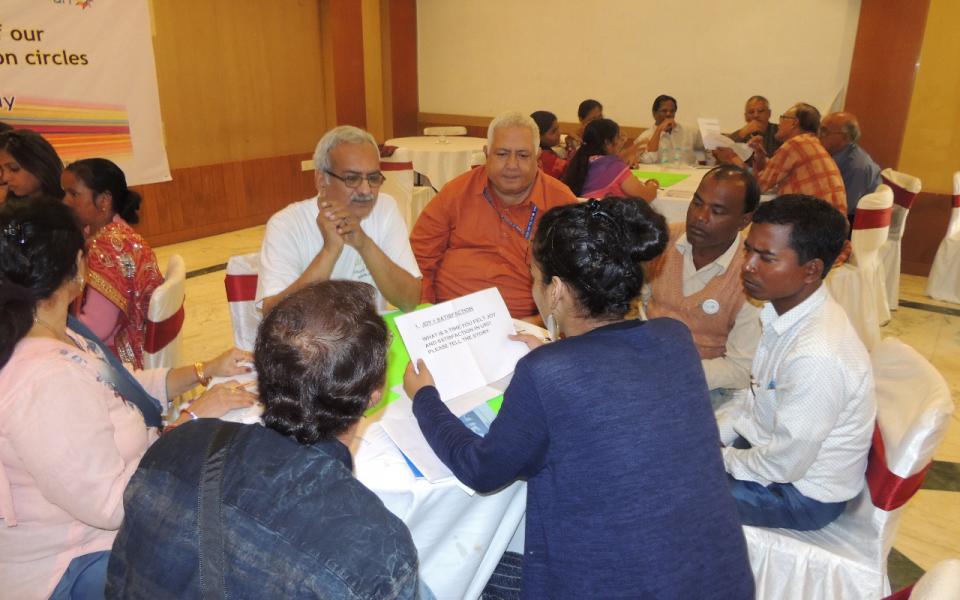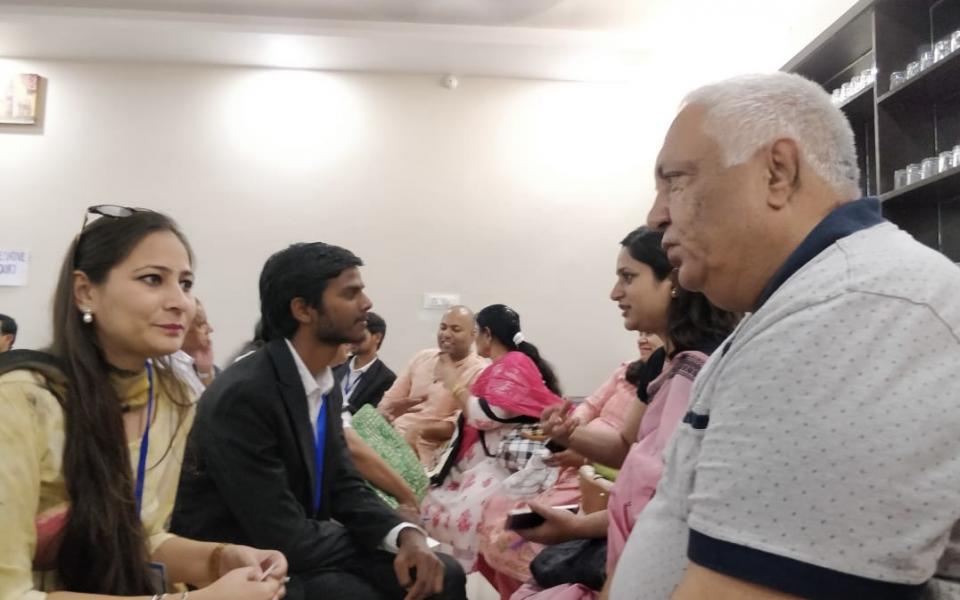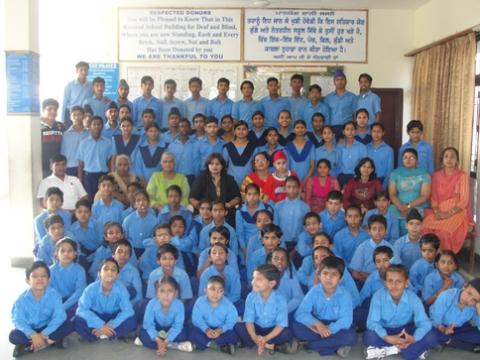
Written by Atharva Mehendale, Community Project Manager - URI North India & Afghanistan
The government's view of slums and unorganised colonies is that they are a manifestation of poverty and rapid migration. The relevant ministries (through their respective departments and autonomous bodies) are trying to address the problems faced by slum dwellers, focusing broadly on issues such as in situ development, slum upgrading, low-cost housing, relocation, or even eviction. The slum dwellers tend to work in large informal sectors, especially in the garment industries or in other skilled, semi-skilled, or unskilled markets. Children in such spaces are in a particularly vulnerable position. Patiala CC, one of URI’s oldest cooperation circles working in the state of Punjab works for the betterment of such children who reside in slums and beggar colonies. The organisation is a group of around 500 active members who have come together over a period of 20 years to work for the common good. They do so without any help or funding support from government authorities. The organisation helps children get admitted in schools, and pays for their tuition and conveyance fees. Lubhana ji, founder of the organisation believes in the far-reaching impact of this action. Kids who receive aid from such civil society organisations have a changed perspective towards life. Their lifestyle undergoes a transformational shift. These children then contribute towards motivating others to study, thereby giving birth to a chain reaction.
In addition to working for the good of children, Patiala CC is also actively involved in organising blood donation camps. What it also actively works towards is trying to eliminate the stigma associated with blood donation, transfusion and use. It tries to educate people about the safety procedures that are usually followed in order to make blood donation a no risk affair. Furthermore, Patiala CC also works to provide vocational training to girls and women living in slums in Patiala. It has set up stitching centres close to these slums – which have pushed a number of girls towards starting their own boutiques and supporting their families. The organisation has been able to provide this free-of-cost training to over 3500 girls until now. Patiala CC also regularly contributes to activities conducted by old age homes. Members of the organisation visit these spaces during festivals in order to distribute sweets, and to distribute woollens during winters. During the Covid-19 pandemic and the resultant lockdown in the country, the organisation was able to provide ration, masks and other essentials to those in need.

Lubhana ji has a number of memories with URI by the virtue of him being one of the oldest CC (Cooperation Circle) members. He particularly remembers memoirs from URI’s regional and national assemblies – which re-affirm within him the power of collective action for a common good. These events also help strengthen the institutional partnership between URI, a global network with a presence in over 108 countries, and a number of civil society institutions and non-governmental organisations working at the grassroots level. The quest that Lubhana ji sees today is a way to make politics more transparent. He wishes for people to consider voting for candidates on the basis of his/her qualifications and mettle as against religion, caste, class or political leaning. This, he feels would go a long way in the society being able to positively work towards a more inclusive growth and a more sustainable tomorrow.

